Literary
Achievements
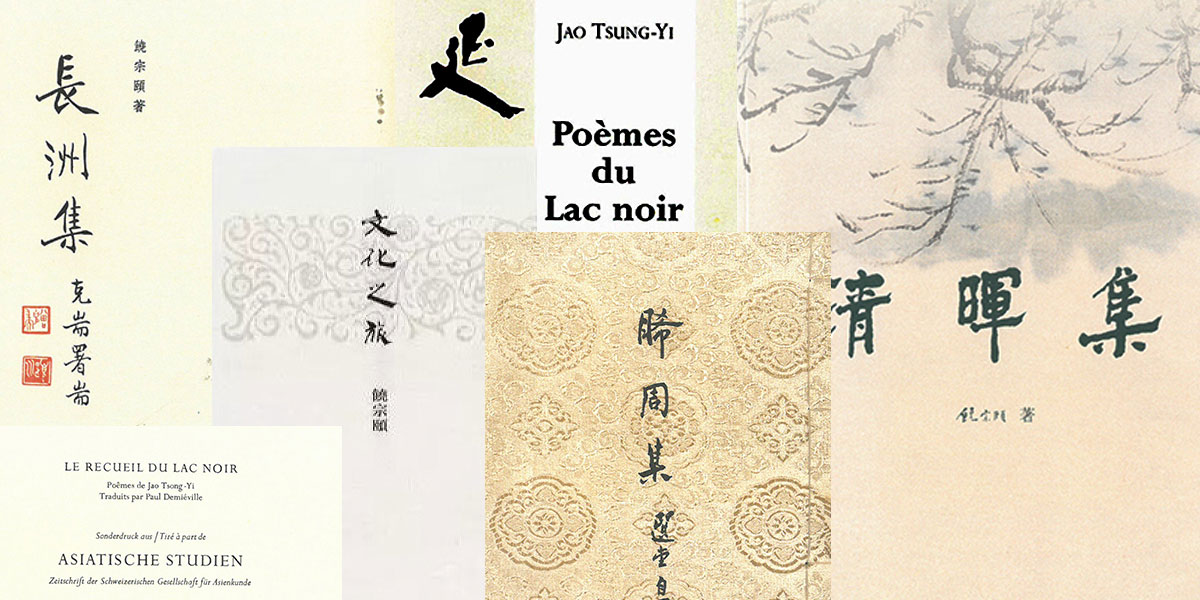
As one of the most famous practitioners of classical Chinese poetry, Professor Jao is noted for his achievements in all the forms of shi poetry, but perhaps even moreso for his brilliant composition of ci lyrics. He invented a new subgenre in this area, the “metaphysical ci” that uses the genre to convey messages of a metaphysical nature. He is also a distinguished author of genres like the fu rhapsody and parallel prose.
Some poems composed by Professor Jao during the Second World War have long been praised for being masterpieces of the period. It is widely considered that Professor Jao’s work can be taken as truly representative of the spirit of classical Chinese culture. Professor Jao also wrote important prose works, such as the book Journey of Culture, a classic of scholarly prose. All in all, Professor Jao has established a unique and incomparable position in the field of contemporary Chinese letters.
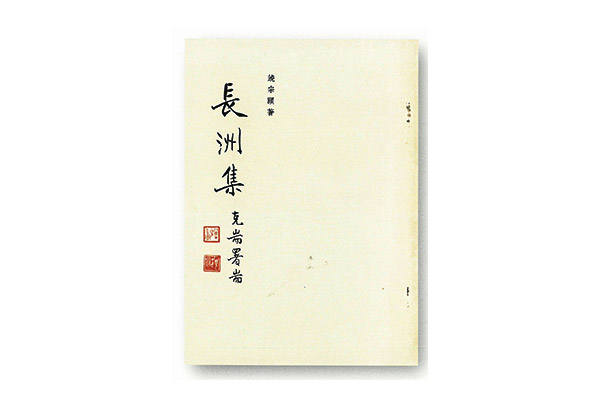
Cheung Chau Collection
1966 Hong Kong
When Professor Jao stayed on Cheung Chau island in Hong Kong on New Year's Eve in 1961, the sound of the surging waves made him emotional. He composed eighty-two poems according to the rhymes of Ruan Ji’s “Singing of My Cares.” It took him five days and he made almost sixteen poems each day, displaying his extraordinary proficiency in classical verse. In the winter of 1990 Professor Jao resided in Paris. At that time he revised and published those poems as an anthology.
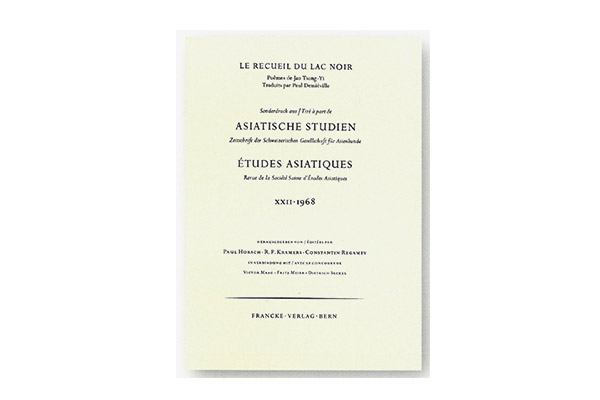
Le Recueil du Lac noir (Paul Demiéville)
1968 France: offprint in Asian Studies
Professor Jao visited Switzerland with Professor Paul Demiéville in August 1966. He was inspired by the scenery of the Alps and composed more than thirty quatrains, later compiled as “Poems on the Black Lake.” Professor Demiéville translated these poems into French and published them in the 22th issue of “Asian Studies”, Switzerland. This episode has been celebrated and retold constantly in poetic circles.
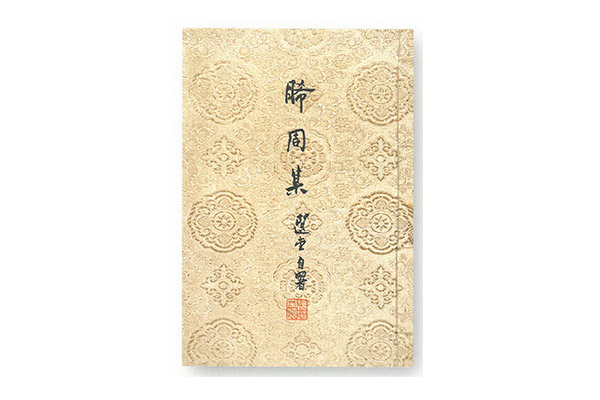
Xizhou ji (thread-bound edition)
1971 Hong Kong
In 1970 Professor Jao was invited to Yale University as a visiting professor. He composed fifty-one ci lyrics according to the rhythm of Zhou Bangyan’s ci lyrics. In less than a month he then wrote another seventy-six pieces. Later on, these works were compiled as Xizhou ji and handwritten by renowned calligrapher Chang Chung-ho, wife of Yale professor Hans Frankel. The style of this anthology differed from his previous works. No wonder Lo Kang-lit wrote in the preface that “while in sounds he has made no error in imitating Zhou, in the spirit underlying the poems he is entirely different.” Professor Jao also stated in the afterword that “when composing ci lyrics according to previous poets’ rhymes, one should not be constrained too much by the original verses, but rather proceed according to one’s own spirit, writing fluidly and delicately in the hope of attaining the realm of Nature’s spontaneous craftsmanship.”
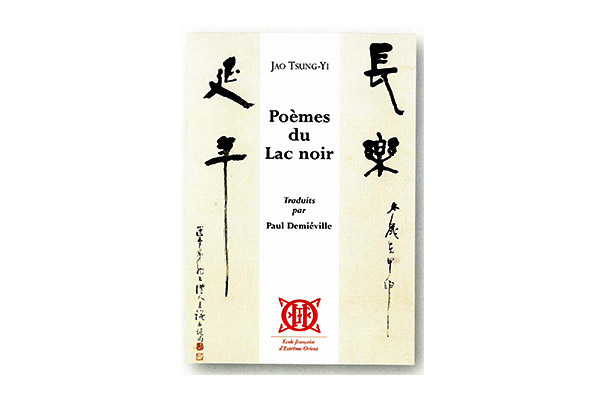
Poèmes du Lac noir (translated by Paul Demiéville)
2006 Paris: École française d'Extrême-Orient
In November 2006, Professor Léon Vandermeersch reprinted the volume Poèmes du Lac noir to celebrate Professor Jao’s birthday. The new edition was renamed Poèmes du Lac noir with a preface written by Professor Vandermeersch.
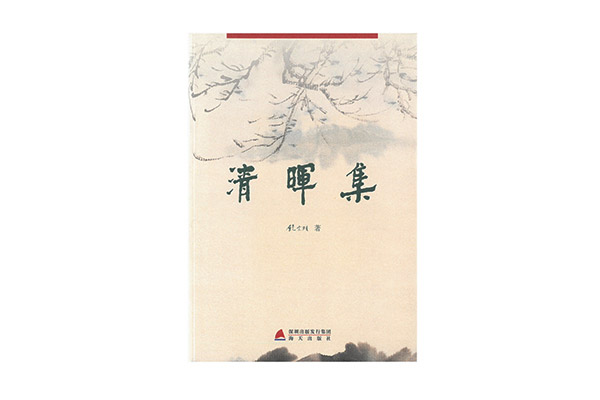
Qinghui ji
2011 Shenzhen: The Rock House Publishers, Ltd.
This book was a comprehensive collection of the classical poems and prose by Professor Jao, including works from his many previous collections. It also added some poems from his youth that had been omitted from previous collections.
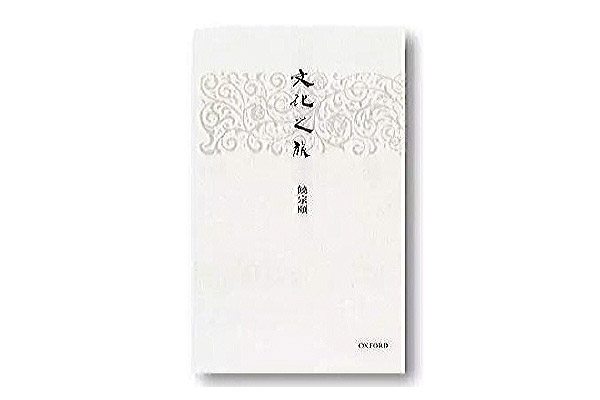
Journey of Culture (reprint)
2014 Hong Kong: Oxford University Press
Professor Jao has said that he has always liked writing informal essays, scrawling observations on one small piece of paper. This book is the collection of his works of casual prose in modern Chinese. Although it was not much valued by Professor Jao himself, readers found it lovely and instructive. These short essays composed spontaneously in response to some casual inspiration still manage to touch directly on important issues. Professor Jao looks upon the world as a true historian, with insights into the meaning of events that go beyond superficial appearances. He looks down upon the world as if from an elevated position, not distracted by particular objects, but always able to find the macroscopic perspective within seemingly minor subjects.
